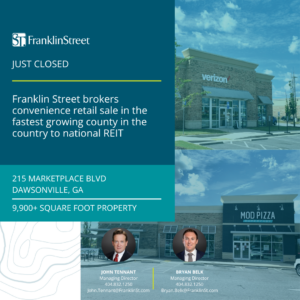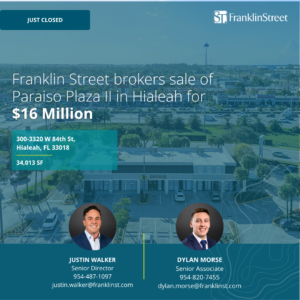A prime, 3,000-square-foot commercial real estate location is available for lease on Edgewater Drive. It could house a new restaurant concept. Perhaps an independent bookstore. Or even be converted into a shared office space. The problem is, business owners face the incredibly expensive and sometimes frustrating process of navigating lease language, understanding city codes and calculating costly impact fees.
The available space is the former Juliana’s restaurant located at 2306 Edgewater Drive.
Currently, Jim and Sylvia Lakey, owners of Gallery of the Edge and Shoppes of College Park, have the sublease rights to the space. They were interested in opening either a Cuban-themed restaurant or a win lounge that served tapas. But when they dove a little deeper from interest into planning, the impact fees became prohibitive – not to mention the city’s requirement that the establishment serve 51 percent food due to the location’s proximity to a church.
Now the Lakeys are looking to partner with an investor who has an idea for the space. “What does College Park want?” asked Jim Lakey. “We could have a Sprint or Mattress Barn in here tomorrow. But we want to keep it mom-and-pop,” he said.
Silvia Lakey added that they want something that fits the neighborhood and other businesses. They cited Mr. Man taking over the Roland’s barbershop space as an example of their commitment to lease mom-and-pop businesses.
Just what makes opening a business on Edgewater Drive so expensive? Beyond the capital one must invest into the business itself, the city assesses both transportation and sewer impact fees.
The city of Orlando website offers the following examples for calculating impact fees: A 2,500-square-foot restaurant would be charged a $42,347 transportation fee and a $243 per seat sewer fee for indoor seating. (The rate is $182 per seat for outdoor covered seating and $91 for outdoor uncovered seating.)
Orlando’s Business Development Division Manager Lillian Scott-Payne said that impact fees are one-time taxes that are paid once for the lifetime of the property. She said the fees cover “the cost of impact on a new business.”
More specifically, the transportation fee and the sewer fee are designed to upgrade the city’s road and sewer infrastructure. The sewer fee, however, will increase if there is a change of use on the property, such as a former retail business space becoming a restaurant.
Scott-Payne pointed out that many existing commercial buildings, such as the ones along Edgewater Drive, almost always have a tax credit.
Of course, leasing business space without professional guidance would be akin to doing your taxes alone after winning the lottery. You may check all the boxes, but you will probably leave money on the table.
Terrence Hart, a local commercial real estate broker with Franklin Street, said one of the first things he does when representing a tenant is call the landlord and ask whether there are any impact fee credits.
His next call is to the city to get an estimation of the impact fees. One of Hart’s biggest selling points as a broker is having contacts at the city. “I can call someone and get an answer in five minutes”
Working with a broker could have saved some local businesses a lot of time and money. Certain businesses have face delayed openings due to ignorance of impact fees and/or the existence of back taxes owed. Hart said these owners should have known what they were getting into before signing a lease.
Typically, the landlord pays the broker a fee, which Hart said amounts to $1,500 to $2,000 on an Edgewater Drive-sized business.
The city of Orlando wants potential owners to know it is there to help small businesses. Scott-Payne said that through the city’s business development office, small businesses can apply for a grant that discounts impact fees – up to 50 percent off with a maximum of $20,000. She said there is a separate change of use waiver, if a business qualifies, for up to $20,000 off the transportation impact fee.
The city understands these are large amounts of money. It offers a payment plan wherein business owners can pay one-third or one-half when issued a permit and pay the balance upon receiving the certificate of occupancy.
Back to the space on Edgewater Drive.
If the Lakeys had deep pockets, they would love to build out a restaurant and jazz club with a rooftop terrace. Jim even sees planters on the edge of the roof growing herbs to sell to local restaurants. The Lakeys have a 99-year lease and an awesome landlord. They are searching for a partner.
Do you have an idea for the space? The Lakeys are all ears.



